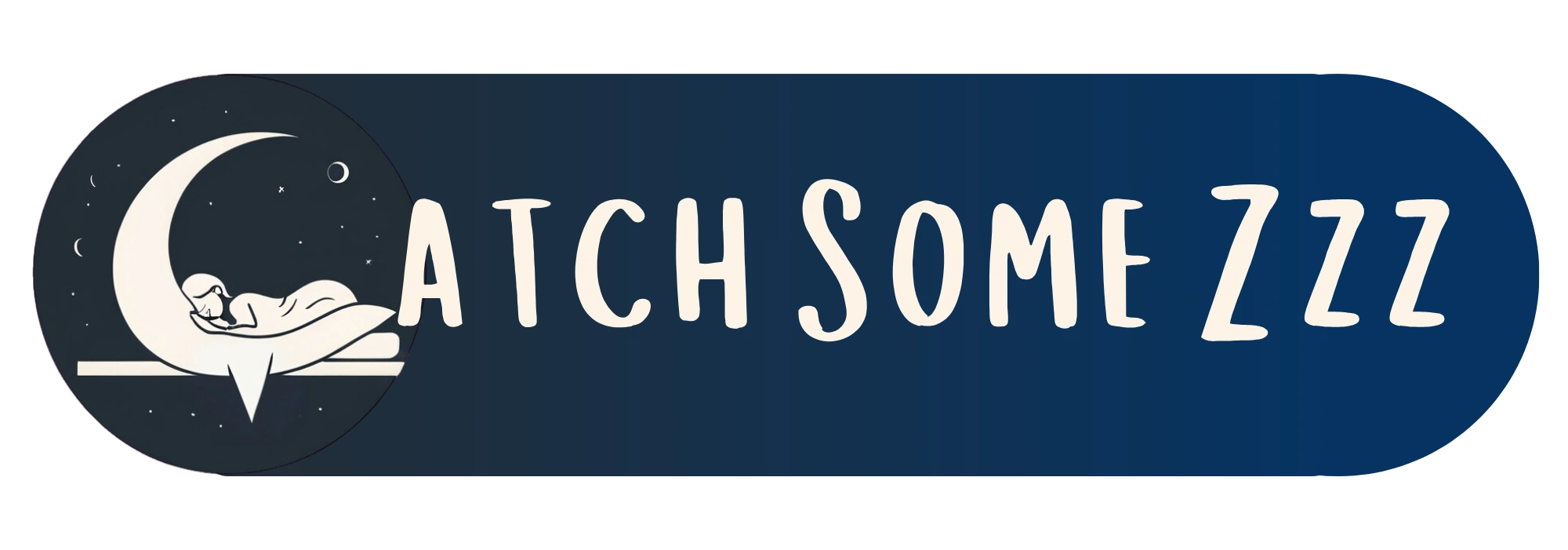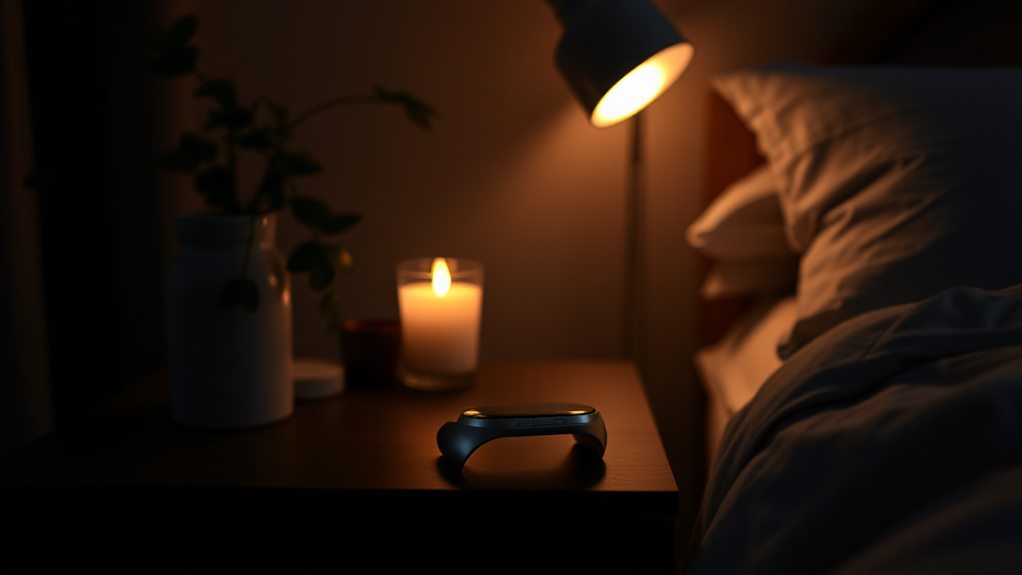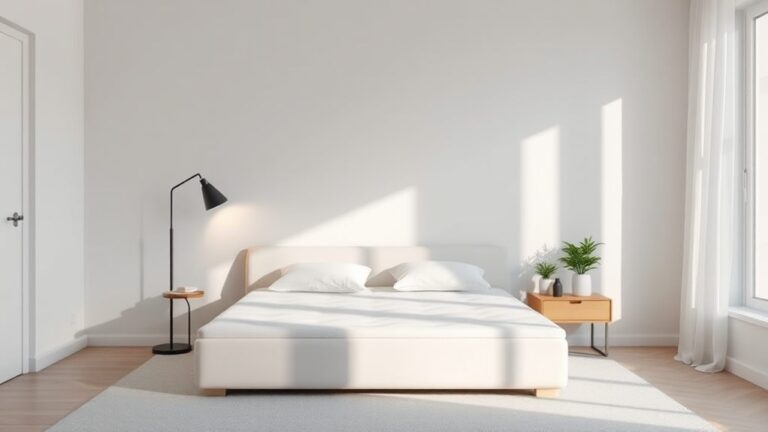You can track your deep sleep patterns accurately with wearable sleep monitors that use advanced sensor technology. These devices monitor your physical and physiological activities while you sleep, providing insights into your sleep quality and helping you identify factors that disrupt your sleep. With this data, you can optimize your sleep schedule, guarantee the right amount of restful sleep each night, and even gain insights into your overall health. From light sleepers to heavy sleepers, there are wearables that cater to specific sleep needs – you're just a step away from discovering the right wearable for a restful sleep.
Nightcap Notes
- Wearable sleep monitors track deep sleep patterns by monitoring physical and physiological activities, such as body movements, heart rate, and brain waves.
- Look for wearables with advanced sensor technology, such as ECG or PPG sensors, and high sampling rates for accurate sleep stage tracking.
- Top wearable sleep monitors include Fitbit Sleep Tracker, Garmin Vivosport Plus, Oura Ring, Samsung Galaxy Fit, and Huawei Band 4 Pro.
- When choosing a wearable, consider specific sleep needs, such as light or heavy sleeping, and features like stress tracking and mindfulness exercises.
- Wearable sleep monitors provide valuable insights into sleep quality, mental health, and athletic performance, helping users optimize rest and recovery strategies.
Benefits of Deep Sleep Monitoring
During a typical night's sleep, you experience different stages of sleep, ranging from light to deep. You cycle through these stages multiple times, with each cycle lasting around 90-120 minutes.
Deep sleep, also known as slow-wave sleep, is the most restorative stage, where your brain waves slow down, and your body repairs and regenerates tissues. With the help of wearable devices that offer sleep stage monitoring, you can now track your deep sleep patterns and gain valuable insights into your sleep quality Sleep Stage Monitoring.
By using these devices, you can identify factors that disrupt your sleep and make changes to improve its quality. Monitoring your deep sleep can have significant benefits. By tracking your deep sleep patterns, you can identify factors that disrupt your sleep and make changes to improve its quality.
You'll feel more refreshed, alert, and focused during the day, which can enhance your productivity and overall well-being. Deep sleep monitoring can also help you optimize your sleep schedule, ensuring you get the right amount of restful sleep each night.
In addition, monitoring deep sleep can provide valuable insights into your overall health, as sleep disorders and other conditions can affect deep sleep quality. By using a wearable sleep monitor, you can take control of your sleep and wake up feeling rested and revitalized.
This can have a significant impact on your daily life, leading to improved physical and mental health.
How Wearable Sleep Monitors Work
Now that you know the benefits of deep sleep monitoring, you're probably curious about how wearable sleep monitors work.
These devices track your sleep patterns by monitoring various physical and physiological activities while you sleep. They use sensors to collect data on your body's movements, heart rate, and brain waves.
Wearable sleep trackers come in various forms, including sleep tracking ring or watch options, each with its own set of features and benefits. Some devices focus on providing detailed insights into sleep patterns, while others prioritize convenience and ease of use.
Here's what's happening behind the scenes:
- *Accelerometers and gyroscopes* track your body's movements, such as tossing and turning, to identify sleep stages.
- *Heart rate variability (HRV) monitoring* helps detect changes in your heart rate that occur during different sleep stages.
- *Electroencephalography (EEG) or electrodermal activity (EDA) sensors* measure brain waves or skin conductivity to determine when you're in deep sleep.
- *Actigraphy* uses a combination of movement and light data to assess sleep patterns.
- *Machine learning algorithms* analyze the collected data to provide insights into your sleep quality and duration.
Features to Look for Deep Sleep
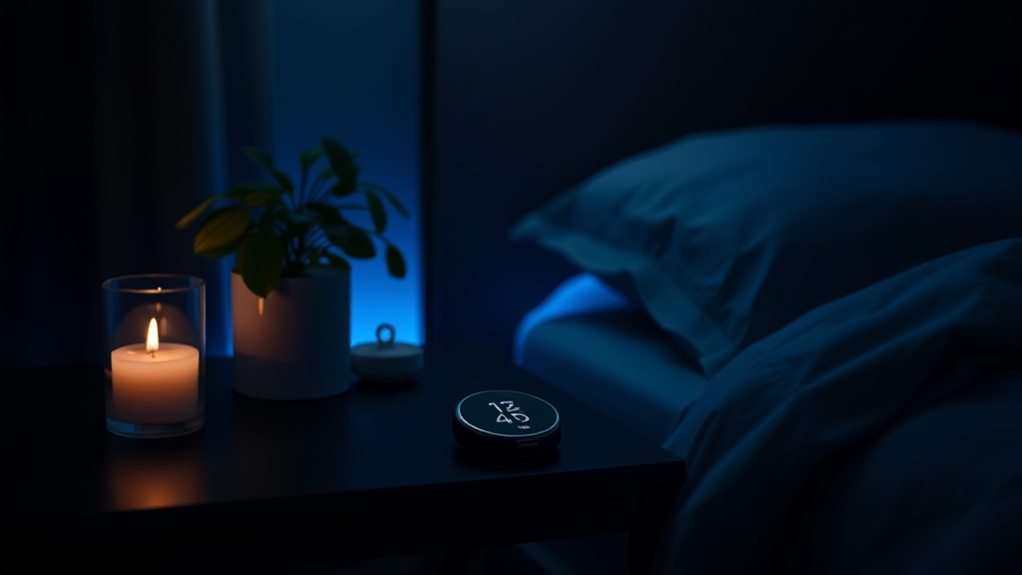
Several key features can make or break a wearable sleep monitor's ability to track deep sleep effectively.
When shopping for a wearable sleep monitor, you'll want to look for devices that can accurately track your sleep stages, including deep sleep, and consider affordable options like those found in affordable home sleep monitoring systems.
A good wearable sleep monitor should have a built-in accelerometer, which measures movement and can detect when you're in a state of deep sleep. You should also look for devices with heart rate variability (HRV) tracking, as this can help identify periods of deep sleep.
Some devices also integrate well with home sleep monitoring systems, allowing for a more thorough understanding of your sleep.
Additionally, consider a wearable sleep monitor with electrodermal activity (EDA) tracking, which measures the electrical activity of your skin and can help detect deep sleep.
Some wearable sleep monitors also use machine learning algorithms to analyze your sleep patterns and provide personalized insights. A device with a high sampling rate will also provide more accurate data.
Finally, consider a wearable sleep monitor with a user-friendly app that allows you to easily view your sleep data and track your progress over time.
Top Wearable Sleep Monitors Compared
Wearable sleep monitors from top brands like Fitbit, Garmin, and Oura are flooding the market, making it challenging to select the best one for tracking your deep sleep.
Each device has its unique features, so examining them thoroughly is crucial before making a purchase. When evaluating wearable sleep monitors, you'll want to weigh factors such as accuracy, comfort, and additional features.
You'll want to take a closer look at the following top wearable sleep monitors:
- *Fitbit Sleep Tracker*: Tracks sleep stages, including deep sleep, and provides personalized insights
- *Garmin Vivosport Plus*: Monitors sleep patterns and provides stress tracking features
- *Oura Ring*: Provides detailed sleep stage tracking and personalized recommendations
- *Samsung Galaxy Fit*: Tracks sleep patterns and integrates with other Samsung health features
- *Huawei Band 4 Pro*: Offers sleep stage tracking and built-in GPS for fitness tracking
Most Accurate Deep Sleep Trackers
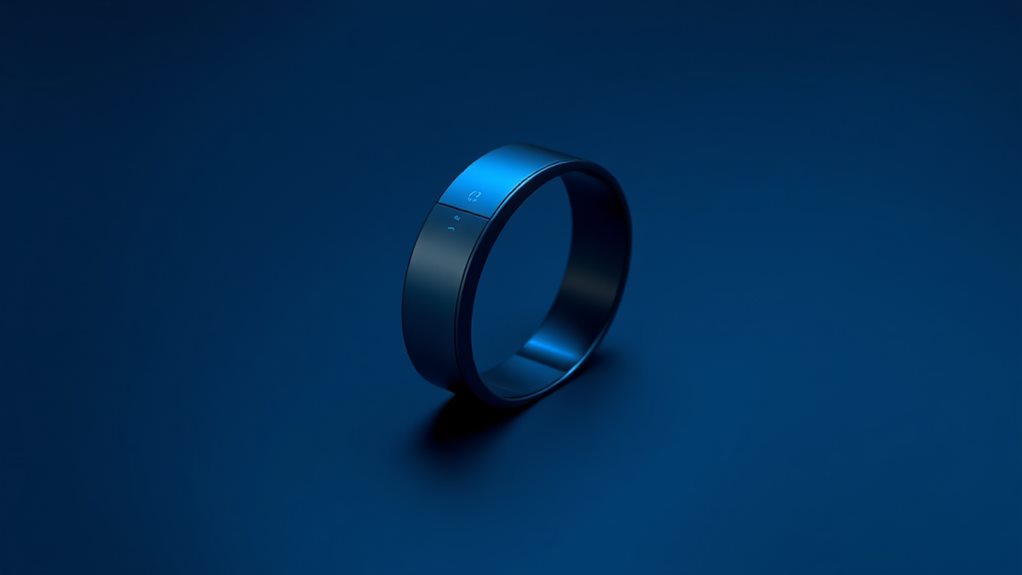
Diving deeper into the world of wearable sleep monitors reveals a key contemplation: accuracy. You want a device that can precisely track your deep sleep patterns, and you're willing to pay a premium for it.
When it comes to accuracy, you should look for devices with advanced sensor technology, such as electrocardiogram (ECG) or photoplethysmography (PPG) sensors. These sensors can detect even the slightest changes in your heart rate and blood flow, allowing for more accurate sleep stage tracking.
You'll also want to ponder devices with high sampling rates, which measure how often the device collects data. A higher sampling rate typically translates to more accurate sleep tracking.
Some wearable sleep monitors also use machine learning algorithms to improve accuracy over time. These algorithms can identify patterns in your sleep data and adjust the device's tracking accordingly.
Devices With Advanced Sleep Analytics
Beyond basic sleep tracking, devices with advanced sleep analytics offer a more thorough look at your sleep patterns.
These devices don't just track the amount of time you sleep, but also monitor the quality of your sleep, including time spent in deep sleep, REM sleep, and light sleep.
With advanced sleep analytics, you'll gain a better understanding of your sleep habits and identify areas for improvement.
- *Sleep stage tracking*: Monitor the amount of time spent in each stage of sleep
- *Sleep cycle tracking*: Track the number of sleep cycles you complete each night
- *REM sleep tracking*: Monitor the amount of time spent in REM sleep, where dreams occur
- *Deep sleep tracking*: Track the amount of time spent in deep sleep, where restoration occurs
- *Sleep score*: Receive a daily sleep score based on the quality of your sleep
Wearables for Different Sleep Needs
Wearables for Different Sleep Needs
Now that you know what features to look for in a device with advanced sleep analytics, you're probably wondering which type of wearable is right for your specific sleep needs.
If you're someone who struggles with insomnia, you'll want a wearable that tracks your sleep patterns and provides relaxation techniques to help you unwind before bed. Look for devices with guided breathing sessions, meditation exercises, or calming music to signal to your brain that it's time to sleep.
If you're a light sleeper, you'll want a wearable that can detect even the slightest movements and sounds, so you can address any sleep disruptions.
On the other hand, if you're a heavy sleeper, you may prefer a wearable that can monitor your sleep stages and wake you up during a light sleep phase, so you feel rested and refreshed.
Considering your specific sleep needs will help you choose the most effective wearable for improving your sleep quality.
Deep Sleep Tracking for Athletes
The demands of athletic training can take a toll on your body, and adequate sleep is essential for peak performance and recovery.
As an athlete, you need to prioritize deep sleep to allow your muscles to repair and rebuild. Wearable sleep monitors can help you track your deep sleep patterns, ensuring you're getting the restful sleep you need.
With a wearable sleep monitor, you can:
- Track your deep sleep stages, including duration and quality
- Monitor your sleep cycles to optimize your rest and recovery
- Identify sleep disruptions and make adjustments to improve sleep quality
- Set personalized sleep goals and receive tailored recommendations
- Analyze your sleep data to fine-tune your training and recovery strategies
Impact on Mental Health Monitoring
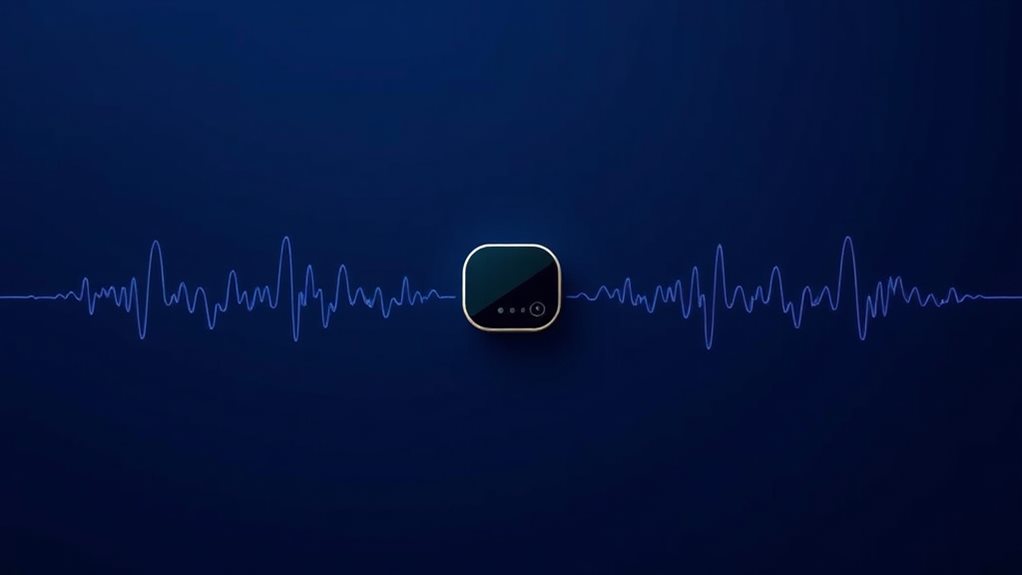
As you're tracking your deep sleep patterns to optimize athletic performance, you may also want to ponder the impact of wearable sleep monitors on mental health monitoring. Vital to understand how sleep affects your mental well-being, and wearables can provide valuable insights. By monitoring sleep patterns, you can identify potential mental health issues, such as anxiety or depression.
Wearable sleep monitors can provide pivotal data to help you address these issues. For instance, some wearables offer features like stress tracking, heart rate variability monitoring, and mindfulness exercises. These features can help you develop healthy coping mechanisms and reduce stress levels.
| Mental Health Metric | How Wearables Can Help |
|---|---|
| Stress levels | Track physiological responses to stress |
| Anxiety | Monitor sleep patterns and heart rate variability |
| Depression | Identify irregular sleep schedules and offer mindfulness exercises |
| Mood swings | Track emotional responses through self-reporting features |
| Focus and concentration | Provide personalized recommendations for improving sleep quality |
Maximizing Deep Sleep With Wearables
You're probably already sold on the idea of using wearables to optimize your sleep, but now it's time to dive deeper into how these devices can help you maximize deep sleep.
Wearable sleep monitors can track your sleep patterns, providing valuable insights into the quality of your rest.
By analyzing this data, you can make informed decisions to improve your sleep hygiene.
To maximize deep sleep with wearables, consider the following strategies:
- Track your sleep stages to identify patterns and trends in your deep sleep
- Set reminders to establish a consistent sleep schedule
- Monitor your physical activity to guarantee you're not over-exerting yourself before bedtime
- Receive alerts to create a relaxing bedtime routine, signaling to your body that it's time to wind down
- Get personalized recommendations for improving your sleep environment, such as adjusting the temperature or lighting in the bedroom
Frequently Asked Questions
Are Wearable Sleep Monitors Safe to Wear for Extended Periods?
You're probably wondering if wearing a device to track your sleep long-term is safe.
Generally, you don't have to worry, as most devices use non-invasive methods to monitor sleep. However, you should take precautions to avoid skin irritation and guarantee a snug, not constricting, fit.
You'll also want to choose a device with a battery that's safely enclosed to avoid exposure to hazardous materials. Overall, you can wear these devices without concern.
Do Wearable Sleep Trackers Work With Multiple Users or Accounts?
You're wondering if you can share your wearable device with family members or friends.
Do wearable sleep trackers work with multiple users or accounts? You'll be glad to know that many wearable sleep trackers do support multiple users or accounts.
You can usually set up separate profiles or accounts for each user, allowing you to track individual sleep data and insights. This feature is convenient for couples or families who want to share a single device.
Can Wearable Sleep Monitors Be Used With Children or Infants?
You're wondering if those newfangled contraptions can be used on young whippersnappers, eh?
Well, when it comes to your mini-me's, you'll be glad to know that many wearable sleep monitors can be used with children or infants.
You can strap a kid-friendly device to their wrist or onesie, and it'll track their sleep patterns.
Just make sure to choose a device designed for their age group, and consult with your pediatrician before using it.
How Do Wearable Sleep Monitors Handle Power Outages or Dead Batteries?
You're probably wondering what happens when your device's power source fails.
If you're using a wearable device, you'll likely have to recharge or replace the batteries. But, don't worry, you won't lose all your data.
Most devices have a backup mechanism to store data temporarily until the power is restored. You'll be able to track your sleep patterns again as soon as you recharge or replace the batteries.
Are Wearable Sleep Tracking Devices Covered by Health Insurance Plans?
You're wondering if you can get your insurance to cover a sleep tracking device.
Generally, you won't find these devices covered by health insurance plans. You might get lucky with some plans that offer extra wellness perks, but that's not the norm.
You should check with your insurance provider directly to confirm their policy. Don't be surprised if you end up paying out of pocket for that new sleep tracker.
Conclusion
As you slip into deep sleep, your wearable sleep monitor tracks every heartbeat, every toss, and every turn. Coincidentally, just as your body starts to reap the benefits of deep sleep, your wearable is hard at work, collecting data to help you maximize those benefits. With accurate tracking, you'll wake up feeling refreshed, renewed, and ready to tackle the day. Your wearable is more than just a device – it's your sleep guardian.
